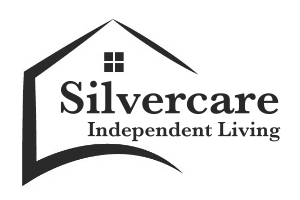Self insurance for elderly
Health Insurance and the Elderly: What You Need to Know
Self-insurance is a strategy where an individual sets aside funds to cover potential losses, rather than purchasing an insurance policy from a company. Essentially, instead of paying premiums to an insurer, one becomes their own insurer, taking on both the responsibility and the risk of covering expenses that might arise from unexpected events.
Benefits of self insurance
Self-insurance, while not for everyone, offers a distinct set of advantages that make it an appealing choice for some:
- Flexibility: With self-insurance, there’s a heightened degree of control over one’s funds. Individuals can decide how much to set aside, where to invest, and when to use the funds based on their unique needs and circumstances.
- No Premiums: By eliminating the middleman – the insurance company – individuals don’t pay regular premiums. Over time, this can result in substantial savings, especially if large claims are infrequent.
- Interest and Investment Growth: The funds set aside for self-insurance can be invested, allowing for potential growth. Unlike premiums paid to an insurer, which don’t earn interest for the policyholder, self-insured funds can accumulate and compound over time.
- Custom Tailoring: Every individual has different needs and risks. Self-insurance allows for custom-tailored solutions. If there’s a specific risk or need that isn’t covered by standard insurance policies, self-insurance can fill that gap.
- Transparency: With self-insurance, there’s clarity about where the money goes. One can directly observe and manage the accumulation and use of funds, ensuring transparency in the entire process.
- Quick Decision Making: Without the need to consult with or get approvals from an insurance company, decisions about fund usage can be made swiftly and directly, especially in times of urgency.
- No Policy Restrictions or Limitations: Traditional insurance often comes with stipulations, limitations, or exclusions. Self-insurance bypasses these constraints, allowing for coverage that suits the individual’s specific circumstances.
While these benefits make self-insurance attractive, it’s essential to weigh them against potential challenges and risks. Careful planning and understanding are key to leveraging the advantages of self-insurance effectively.

Risks of self insurance
While self-insurance presents a range of benefits, it also comes with its set of challenges and risks that need careful consideration:
- Financial Burden: One of the most glaring risks is the potential financial burden. If an unexpected large expense arises, especially early on, it can deplete the self-insurance fund, leaving the individual exposed to significant out-of-pocket costs.
- Lack of Expertise: Managing a self-insurance fund requires financial acumen. Without the proper knowledge or guidance, individuals might make missteps in investing or allocating the funds, potentially jeopardising their financial safety net.
- Stress: You are taking on the risk of paying for your health needs. A lot of people find this stressful and would rather know that they are covered incase anything happens.
- No Risk Pooling: Traditional insurance operates on the principle of pooling risks among a large group. In self-insurance, there’s no risk pooling. The individual bears all the risks, making it essential to have a substantial reserve.
- Government Support: A number of grants or benefits from the government is based on availability of fund that you have. If you have a large pool of money for potential issues you will not be able to get these government benefits.
Considering these challenges and risks is vital when evaluating the viability of self-insurance. Seeking professional advice and thorough financial planning can help mitigate some of these concerns, ensuring a more balanced approach.

a self insurance strategy
- Determine Potential Health Costs:
- Routine Medical Expenses: Calculate your average annual expenses for routine medical check-ups, medications, and any ongoing treatments.
- Future Medical Needs: Consider any anticipated surgeries, treatments, or therapies in the foreseeable future.
- Emergency Health Funds: It’s crucial to factor in unexpected health crises or accidents. Research shows that as we age, the likelihood of needing urgent medical care increases.
- Start with a Base Fund:
- Goal: Aim to save at least one year of combined routine and future medical expenses as a starting point.
- Contribution Strategy: Dedicate a set percentage of your monthly income, for instance, 10%, to reach this initial target quickly. This might require tightening the belt on other expenses temporarily.
- Build on that fund:
- Goal: Regularly put aside money into that fund and invest it wisely. Build that fund up so that eventually you have enough to cover long term health needs.
- Regular Health Assessments:
- Annual Check-ups: Regular medical check-ups will provide clarity about your health status and any potential future treatments.
- Adjustments: Based on health assessments, adjust your savings and investment strategy as required.
- Stay Informed:
- Research: Stay updated on health care costs in your region. In New Zealand, for instance, certain treatments might be subsidised or have different pricing structures.
- Insurance Options: Periodically review the healthcare insurance market. At times, a hybrid approach—combining self-insurance with a high-deductible health plan—might offer a balanced solution.
- Consult Professionals:
- Financial Advisor: To ensure your investments are sound and provide the required liquidity.
- Health Advisor: For a clearer understanding of potential future health needs and costs.
Keep healthy. One large benefit of self insurance in healthcare is that you will be motivated to stay healthy. You have no insurance backstop, so the best way to save is to stay healthy. While not possible in all circumstances, you can definitely make a difference by eating well, reducing stress and exercising.
Self-insuring for health requires careful planning, consistent saving, and regular assessment. By being proactive, you can create a cushion that ensures peace of mind and financial security against health-related expenses. Always consult professionals to tailor the strategy to your unique needs and circumstances.
